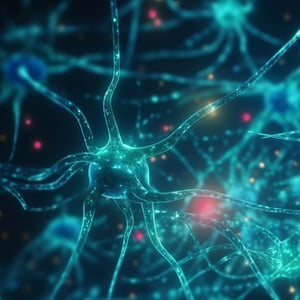As we age, our brains start to shrink. This first starts to happen as we enter our 30s and 40s, and the rate of shrinkage increases as we reach our 60s.
Did you know? Some functions such as processing speed, spacial awareness and memory deteriorate as we age, but other functions such as verbal ability and abstract reasoning; the ability to understand complex concepts, actually improve on average.
Even though we may be more prone to certain diseases as we age, there are steps we can take to support our brain health and cognition as we grow older, such as eating healthy, exercising, and staying mentally active.
Table of Contents:
- Parts of the Brain That Shrink
- Normal cognitive changes and Challenges
- Conclusion
- Key Takeaways
- Frequently Asked Questions
What parts of the brain shrink?
Brain shrinkage doesn’t happen to all areas of the brain at once. Some areas of the brain shrink more quickly than others.
Brain mass: The frontal lobe and hippocampus, the areas responsible for cognitive function shrink more than other areas. The frontal lobe is located directly behind the forehead and is the control centre for human behaviours and our personalities. The hippocampus is embedded deep into the temporal lobe and is plays a major role in learning and memory. Studies have also shown that this is the area of the brain that is susceptible to several neurological and psychiatric disorders.
Cortical Density: The wrinkled outer layer of the brain contains neuronal cell bodies and thins with age, leading to fewer connections which could contribute to slower cognitive processing.
White matter: White matter in the brain consists of nerve fibers bundled into tracts and transmit nerve signals between all four lobes of the brain. This matter shrinks with age, slowing down processing and cognitive function.
Normal cognitive changes and challenges to expect as we age:
- Memory Problems
- Trouble recalling words or vocabulary
- More difficult to learn something new
- Slowdowns caused by decreased communication between nerve cells in the brain
Read more: 5 ways to keep your mind sharp as you age.
Conclusion
As individuals age, natural changes in brain structure and function occur, leading to certain cognitive declines while some abilities may improve. Understanding the specific areas of the brain that shrink and the cognitive challenges to expect can help in taking proactive steps to support brain health. Engaging in a healthy lifestyle, including proper nutrition, physical activity, and mental exercises, can play a significant role in maintaining cognitive functions and enhancing overall brain health.
Key Takeaways:
- The brain begins to shrink in the 30s and 40s, with the rate of shrinkage increasing significantly by the 60s.
- Aging affects processing speed, spatial awareness, and memory negatively, while verbal ability and abstract reasoning can improve.
- Common cognitive issues include memory problems, difficulty recalling words, challenges in learning new information, and slower cognitive processing.
- Maintaining brain health through a healthy diet, regular exercise, and mental activities is crucial to mitigate cognitive decline with age.
Participate in research:
Researchers are working to understand how we can prevent cognitive decline as we age. We are currently evaluating the effect of a food supplement on cognitive performance. Consider joining this study to be a partner in discovering new scientific knowledge.
More information on our current cognition study here.
FAQs:
Which parts of the brain are most affected by shrinkage?
The frontal lobe and hippocampus are the most affected areas. These regions are crucial for cognitive functions such as learning, memory, and personality.
What are the common cognitive challenges faced as people age?
Common challenges include memory problems, difficulty recalling words, trouble learning new things, and slower cognitive processing.
How can individuals support their brain health as they age?
Brain health can be supported by eating a healthy diet, exercising regularly, and staying mentally active through activities like reading, puzzles, and social engagement.
Why is cortical density important, and how does it change with age?
Cortical density refers to the outer layer of the brain that contains neuronal cell bodies. It thins with age, leading to fewer connections and potentially slower cognitive processing.


